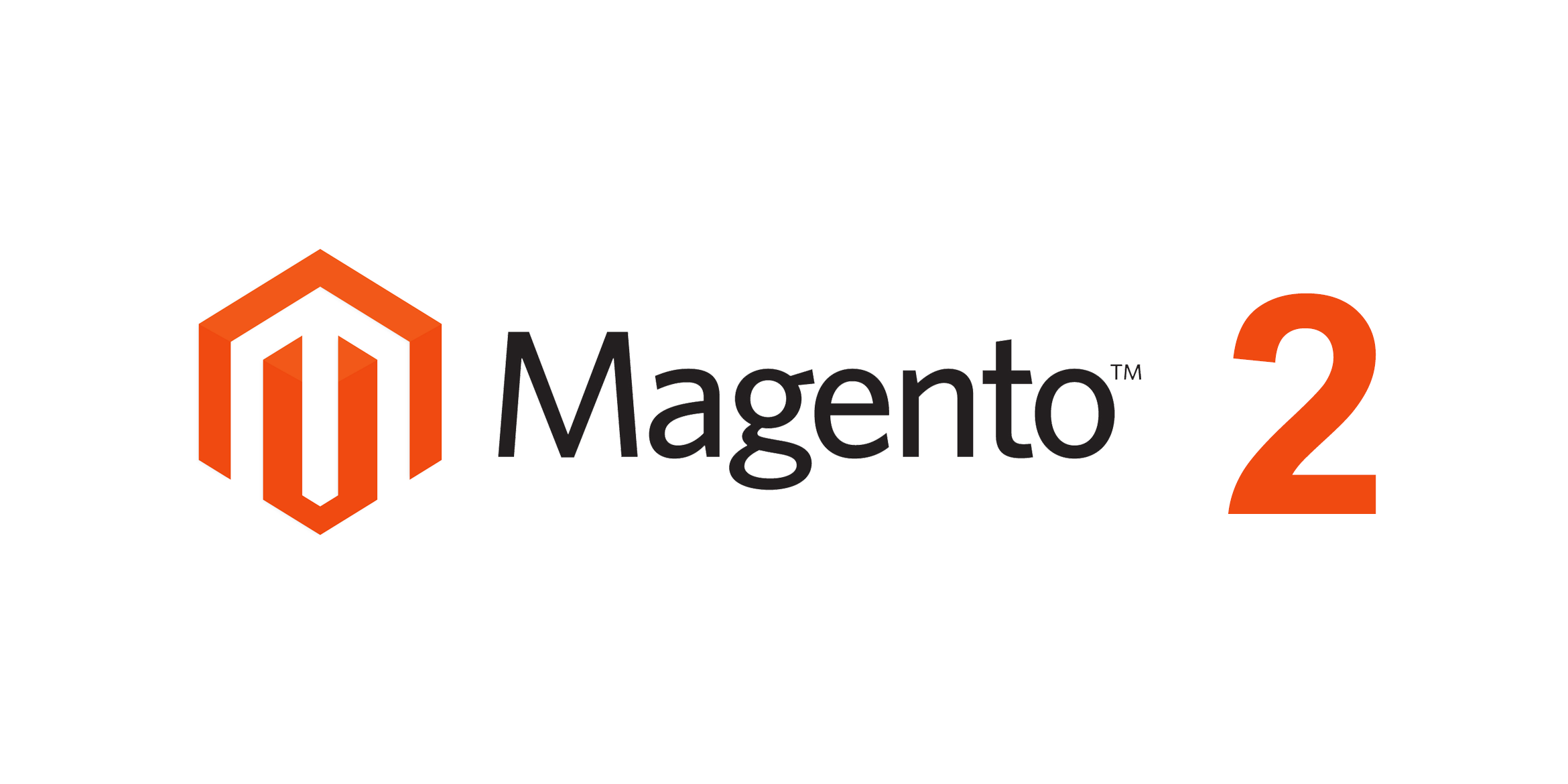In the ever-evolving world of digital commerce, choosing the right eCommerce platform for your business is crucial for success. Magento, a leading platform in this arena, stands out for its robust features and flexibility. This article delves into the benefits of Magento, from its open-source nature that fosters customization and community-driven development, to its scalability that accommodates business growth. We explore how Magento’s SEO-friendly features, advanced analytics, and mobile responsiveness cater to the demands of modern eCommerce. Additionally, we touch on the ease of third-party integration and the advantages of its flexible content management system.
Whether you’re a startup or an established enterprise, understanding Magento’s capabilities is key to making an informed decision for your online store. As we unpack these features, you’ll gain insights into why Magento is a preferred choice for businesses aiming to excel in the digital marketplace.
Table of Contents
Magento 2 Overview
What Is Magento?
Magento is an open-source eCommerce platform written in PHP, known for its flexibility, scalability, and wide range of features. Magento quickly gained popularity in the eCommerce industry due to its robust framework and customizable nature.

Magento’s Open Source and Commerce Cloud platforms provide robust solutions for businesses of all sizes. While the open-source version offers a cost-effective solution with essential eCommerce features, the Commerce Cloud version delivers advanced functionalities suitable for larger, more demanding business operations.
What Is Magento 2?
Magento 2 represents a significant leap forward in the evolution of the Magento platform. As the latest major update, it brings a host of enhancements and new features, reflecting the developers’ response to user feedback and evolving eCommerce needs. This update marks a comprehensive overhaul of the system, aimed at delivering a more robust, efficient, and user-friendly experience.

Key features and benefits of Magento:
- Flexible Architecture: Magento 2 offers a flexible architecture for websites, allowing for greater customization and scalability. This flexibility is crucial for businesses looking to tailor their eCommerce sites to specific needs and growth plans.
- Enhanced Customer Experience: The platform focuses on creating engaging customer experiences. This means improved user interfaces, streamlined navigation, and overall more interactive and enjoyable shopping experiences for customers.
- More Efficient Business Operations: Magento 2 enhances business efficiency with its streamlined processes and improved functionality, making it easier for businesses to manage their online stores.
- Increased Loading Speeds: One of the standout improvements is a 50% increase in loading speeds. Faster loading times not only enhance the user experience but also contribute to better search engine rankings and higher conversion rates.
- Enhanced Payment Security: The update places a strong emphasis on secure payments, incorporating advanced security measures to protect both businesses and customers from potential online threats.
- Simplified Maintenance and Upgrades: Magento 2 simplifies the processes of maintenance and upgrades, reducing the time and effort required to keep the eCommerce site running smoothly and securely.
Magento 2 Statistics
As of now, 239,000 live sites are running on Magento. This is a substantial figure, indicating Magento’s widespread adoption and trust among online retailers. The position of Magento in the global eCommerce platform landscape, as of 2023, presents a nuanced picture of its market standing. According to data from sources like SimilarTech and BuiltWith, Magento ranks as the 8th most popular eCommerce platform worldwide. This ranking provides insight into Magento’s place in the competitive eCommerce platform market.
Moreover, Magento experienced a 6.4% increase in the number of stores in the third quarter of 2023. This quarterly growth rate suggests a steady and positive trend in adoption, reflecting either a shift of existing eCommerce stores to Magento or new businesses choosing Magento for their online operations. The 33% year-over-year growth in the same period is particularly significant. This substantial annual growth indicates that Magento is maintaining and significantly expanding its market share.

Businesses leveraging Magento for their online operations tend to experience rapid growth, with an average rate three times faster than those using other platforms. This platform’s popularity is further underscored by its high download rate, exceeding 5,000 downloads daily, reflecting its strong appeal in the digital commerce sector.
In terms of transaction handling, Magento impressively processes transactions totaling approximately $155 billion each year, showcasing its capability to manage high volumes of sales and its reliability for businesses of all sizes. Additionally, the technical foundation of Magento 2, with over 80% of its core codebase written in PHP, underlines its commitment to using robust and widely-used programming standards, contributing to its flexibility and scalability.
Benefits of Magento 2
Customizability and Flexibility
The customizability and flexibility of Magento stand out as some of the most significant Magento benefits, making it a preferred choice for businesses seeking a tailored eCommerce solution. These features are central to Magento’s appeal, offering unparalleled opportunities for personalization and adaptation to specific business needs.
Magento’s architecture is designed for high customizability, allowing businesses to shape their online stores according to their unique requirements and preferences. This level of customization extends from the look and feel of the store to its core functionalities. Businesses can choose from a wide array of themes and templates, and further modify them to align with their brand identity. Beyond aesthetic changes, Magento’s open-source nature permits deep alterations in its functionality. This means that everything from product display to checkout processes can be tailored to provide a distinctive user experience.

Moreover, Magento allows businesses to create bespoke shopping experiences that can significantly enhance customer engagement and satisfaction. By utilizing its customizability, businesses can implement specific features, promotions, and user journeys that resonate with their target audience. This personalized approach can lead to improved customer loyalty and higher conversion rates, as customers are more likely to engage with a store that caters to their individual preferences and needs.
Scalability
Scalability is one of the key benefits of Magento, making it an ideal eCommerce platform for businesses that are growing or plan to expand in the future. This scalability ensures that Magento can accommodate the evolving needs of a business, from small startups to large enterprises.
One of the primary aspects of Magento’s scalability is its ability to handle increased traffic and sales volume efficiently. As a business grows, so does the number of its online visitors and transactions. Magento is designed to manage large product catalogs and a high volume of orders without compromising on performance. This capability is crucial for businesses during peak times like holiday seasons or promotional periods when there is a surge in online shopping activity.
Moreover, Magento’s architecture is inherently growth-friendly. It supports businesses in scaling up their operations seamlessly. This means that a company can start with a basic set of features and, over time, add more complex functionalities and more products, and expand to new customer segments or geographies. Magento’s modular design allows for such gradual expansion without needing a complete platform overhaul, which can be both disruptive and costly.
Fast Loading Online Store
Fast loading speeds are a crucial aspect of any eCommerce platform, and this area is one of the outstanding benefits of Magento 2. In the digital age, where user attention spans are short, and competition is high, the speed at which an online store loads can significantly impact user experience and, consequently, the success of the business.

In a world where instant gratification is increasingly the norm, especially among the millennial audience, the loading speed of a website is a critical factor. It directly affects user engagement and satisfaction. Studies, including those by Google, have shown that websites that take longer than a few seconds to load are at a high risk of user abandonment. In this context, Magento 2’s focus on speed ensures that eCommerce sites cater to the expectations of a fast-paced, efficiency-oriented user base.
Magento 2 brings significant performance improvements over its predecessor. It is designed to offer faster page loading times, which is vital for providing a smooth and seamless shopping experience. These improvements are achieved through various technical enhancements such as better caching, optimized code, and more efficient database operations. The result is a more responsive interface and quicker interaction times, which are essential for keeping potential customers engaged and reducing bounce rates.
Robust Security
In an era where online threats are increasingly sophisticated, the security of an eCommerce store is paramount, not only for safeguarding sensitive customer information but also for maintaining the trust and confidence of users. Magento’s focus on robust security measures offers several layers of protection to ensure the safety and integrity of eCommerce operations.
Magento’s commitment to security is evident in its implementation of various advanced features:
- Secondary Password Protection: Magento allows for the creation of secondary passwords, adding an extra layer of security. This feature is particularly useful for preventing unauthorized access, ensuring that only those with proper credentials can make changes to the store or access sensitive customer data.
- CAPTCHA and Google reCAPTCHA: The integration of CAPTCHA and Google reCAPTCHA in login screens is a significant step in thwarting automated attacks. These tools are effective in distinguishing between human users and automated bots, thereby preventing spam and automated hacking attempts.
- PCI Data Security Standard Compliance: Magento adheres to the Payment Card Industry Data Security Standard (PCI DSS). This compliance is crucial for any platform handling credit card transactions, as it ensures that all cardholder data is managed securely, reducing the risk of data breaches and fraud.
SEO Friendly
One of the benefits of using Magento is SEO-friendly. Magento’s SEO-friendly features are a significant boon for businesses looking to improve their online visibility and drive more traffic to their store. These features not only aid in ranking higher on search engine results pages (SERPs) but also enhance the overall user experience, contributing to higher sales and conversions.
Magento allows store owners to create custom meta titles and descriptions for each page. This is a crucial aspect of on-page SEO, as well-tailored meta tags can significantly improve a website’s click-through rates from SERPs. By enabling detailed control over these tags, Magento helps in accurately representing the content of each page, which is essential for both search engine optimization and providing clear, concise information to users browsing search results.

Magento’s built-in URL rewrite functionality is another standout feature for SEO. This allows for the creation of clean, search-engine-friendly URLs that are easier to crawl and index. Well-structured URLs are not only more appealing to users but also help search engines understand the structure and content of the site better, thus potentially improving SERP rankings.
Moreover, Magento’s structure and coding practices are optimized for search engines. This means that websites built with Magento are inherently easier for search engines to crawl and index. Effective indexing is crucial for ensuring that all the content on the website is recognized and ranked by search engines, which directly impacts the site’s visibility in search results.
Additionally, optimizing product pages is streamlined with Magento, especially in the Enterprise Edition. The platform allows for easy optimization of product descriptions, images, and metadata, making each product page an opportunity to rank in search results. Magento’s focus on SEO ensures that these pages are not only informative and user-friendly but also optimized for search engines.
Large Community and Support
One of the most notable advantages of Magento is its expansive and dynamic community. This community, comprising developers, designers, and users, is a cornerstone of the Magento experience, offering a wealth of resources, support, and innovation.
The Magento community is renowned for its vibrancy and creativity. It’s a melting pot of professionals and enthusiasts who are continually developing new modules, themes, and extensions. This ongoing innovation enriches the Magento ecosystem, providing users with a wide array of tools and functionalities to enhance their online stores. Whether it’s a unique design theme or a functional module to streamline operations, the Magento community often has something to offer for every need.

Furthermore, one of the most significant aspects of the Magento community is the extensive support it offers. If you encounter a challenge or need guidance on managing your Magento store, there’s a high probability that the solution already exists within the community. From detailed tutorials to comprehensive articles, the community has a vast repository of knowledge and experience. This collective wisdom is precious, especially for new users or those tackling complex issues.
The Magento community is not just a resource for solving problems; it’s a platform for collaboration and shared learning. No matter what issue you might face with your Magento store, it’s likely that someone within the community has encountered and resolved a similar challenge. This collaborative environment fosters learning and innovation, helping users to continuously improve their stores.
Mobile-Friendly Configuration
Magento’s inherent responsive design is one of the benefits of Magento and a key feature for eCommerce stores looking to capture the mobile audience. This functionality ensures that the store’s layout and content automatically adjust to fit the screen size and resolution of various mobile devices. Whether your customers are accessing your store via smartphones or tablets, Magento provides an optimal viewing and interaction experience. This responsiveness not only enhances user experience but also contributes to better engagement and potential conversion rates.

Beyond just a mobile-responsive website, Magento offers dedicated tools for creating custom mobile applications for your store. This feature is particularly beneficial for businesses looking to offer a more personalized and streamlined shopping experience through a native mobile app. These apps can leverage device-specific functionalities and offer a more immersive and convenient shopping experience, which is increasingly favored by mobile users.
One of the benefits of Magento – mobile-friendly configuration ensures a seamless shopping experience across all devices. Customers can effortlessly browse products, add items to their cart, and complete purchases regardless of the device they are using. This consistency is vital in building trust and loyalty among customers, as it removes barriers and frustrations often associated with poorly optimized mobile sites.
Advanced Analytics and Reporting
Magento’s platform is equipped with powerful analytics capabilities that allow store owners to delve into the nuances of consumer behavior. Understanding how customers interact with your store, what products they prefer, and their purchasing patterns is crucial for making informed business decisions. Magento provides these insights, helping businesses to tailor their strategies to meet consumer needs more effectively.
With Magento, users have access to an array of reporting features, encompassing over 20 different reports accessible through a user-friendly web interface. These reports cover essential aspects of eCommerce operations, including order summaries, customer activity, and product sales. Such detailed reporting enables store owners to track and analyze various metrics critical to their business’s success.

Magento’s reporting tools offer insights into several key areas:
- Orders and Sales: Track the number of orders, overall sales figures, and average order value.
- Customer Engagement: Understand customer buying habits, including repeat purchases and account registrations.
- Product Performance: Gain insights into which products are performing well, including best-sellers and trends.
- Financial Metrics: Monitor important financial data such as taxes, shipping fees, and revenue.
Third-Party Integration
The capability of Magento to seamlessly integrate with various third-party services is a substantial benefit, greatly enhancing the functionality and efficiency of eCommerce stores. This integration capability plays a critical role in streamlining operations, improving customer experiences, and potentially reducing operating costs.
One of the key benefits of Magento is the ease of integration with key third-party services like payment gateways and shipping carriers which is particularly valuable. This integration simplifies the checkout process, making it more convenient and user-friendly for customers to complete purchases. By supporting a wide range of payment methods, Magento ensures that businesses can cater to the diverse preferences of their customer base.

The integration with various payment and shipping services not only enhances the customer experience but also streamlines the checkout process. This smooth, hassle-free checkout is crucial in reducing cart abandonment rates and increasing conversions. Customers appreciate a quick and efficient checkout experience, which Magento facilitates through its integration capabilities.
Moreover, integrating with third-party services can also lead to cost savings for the store. By connecting with providers that offer discounts and promotions, businesses can reduce their operational costs. These savings can be particularly significant in areas such as shipping and payment processing, where competitive rates can directly impact the bottom line.
Flexible Content Management
Magento’s flexible content management system (CMS) stands out as a significant advantage for eCommerce businesses, offering a highly versatile platform for managing a wide array of content. This flexibility is crucial in creating a dynamic and engaging online store.
The CMS within Magento is adept at handling various types of content, from basic pages to complex product descriptions and engaging blog posts. This versatility allows businesses to effectively showcase their products, share relevant information, and engage with customers through diverse content formats.

One of the key benefits of Magento’s CMS is the ability to create custom pages, including specialized landing pages. These custom pages can be tailored for specific marketing campaigns, product launches, or promotional events, providing a unique experience to visitors. The ability to craft these dedicated pages is essential for driving targeted marketing efforts and enhancing user engagement.
Magento simplifies content management with its intuitive drag-and-drop interface, making it accessible even to those with limited technical expertise. This user-friendly interface allows store owners to easily add, rearrange, and modify content on their site. The drag-and-drop functionality streamlines the process of content creation and layout design, saving time and reducing the need for specialized technical skills.
Which Type of Business Should Implement Magento 2
Magento 2 is an incredibly versatile eCommerce platform, suitable for a wide range of businesses. However, it particularly excels in certain environments and scenarios. Here are the types of businesses that should consider implementing Magento 2:
- Mid to Large-Sized Enterprises: Magento 2 is ideal for medium to large businesses that require a robust, scalable platform to handle a significant volume of products and high traffic levels. Its ability to manage complex operations and grow with the business makes it a solid choice for larger enterprises.
- Businesses Seeking Customization and Scalability: If your business needs a highly customizable platform to create a unique online presence or to scale up as your business grows, Magento 2 is an excellent choice. Its open-source nature allows for extensive customization in terms of aesthetics and functionality.
- Companies with Diverse and Global Operations: Businesses that operate in multiple countries or require multi-language and multi-currency support will find Magento 2 particularly beneficial. Its global orientation helps in catering to a diverse customer base.
- B2B and B2C eCommerce: Magento 2 is well-suited for B2B and B2C models. It offers features tailored to the complexities of B2B transactions as well as the user-friendliness required for B2C operations.
- Businesses Needing Advanced Features: For companies seeking advanced eCommerce features like complex catalog management, integrated CRM and ERP systems, or sophisticated marketing tools, Magento 2 is a strong contender. Its rich feature set and extensibility can accommodate a wide range of advanced eCommerce needs.
- Retailers Looking for Omnichannel Solutions: Magento 2 is beneficial for retailers aiming to integrate their online and offline channels. It provides features that support a cohesive omnichannel strategy, enhancing customer experience across various touchpoints.
In conclusion
Magento stands as a powerful and versatile eCommerce platform, offering many benefits that cater to the diverse needs of online businesses. From its open-source nature that allows for extensive customization and community-driven innovation, to its robust security measures ensuring a safe shopping experience, Magento demonstrates its capability to address the critical aspects of digital commerce. The benefits of Magento like scalability ensure that businesses can grow without constraints, while its SEO-friendly features enhance online visibility and drive traffic.
If you’re interested in diving deeper into the Magento 2 features and benefits or exploring the broader landscape of eCommerce, there is a wealth of resources available. For those keen on understanding the latest trends, statistics, and strategies in eCommerce, subscribing to Magenest could be an excellent step. Magenest offers insightful content, tips, and updates on building and optimizing eCommerce platforms, with a particular focus on Magento.











